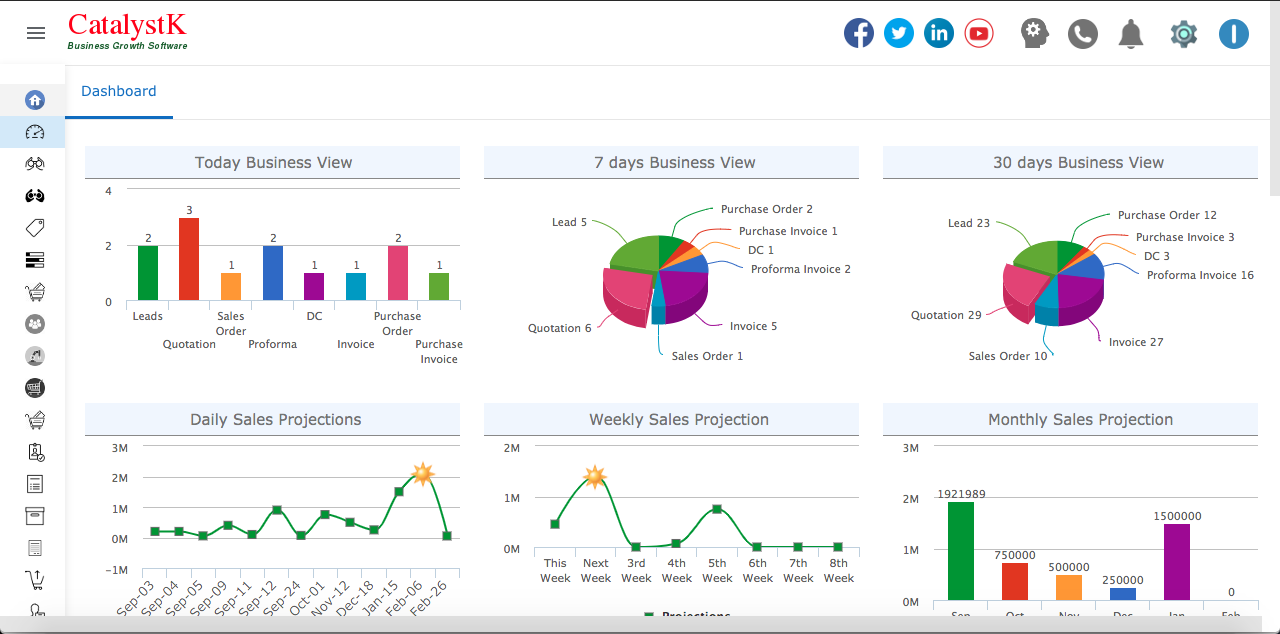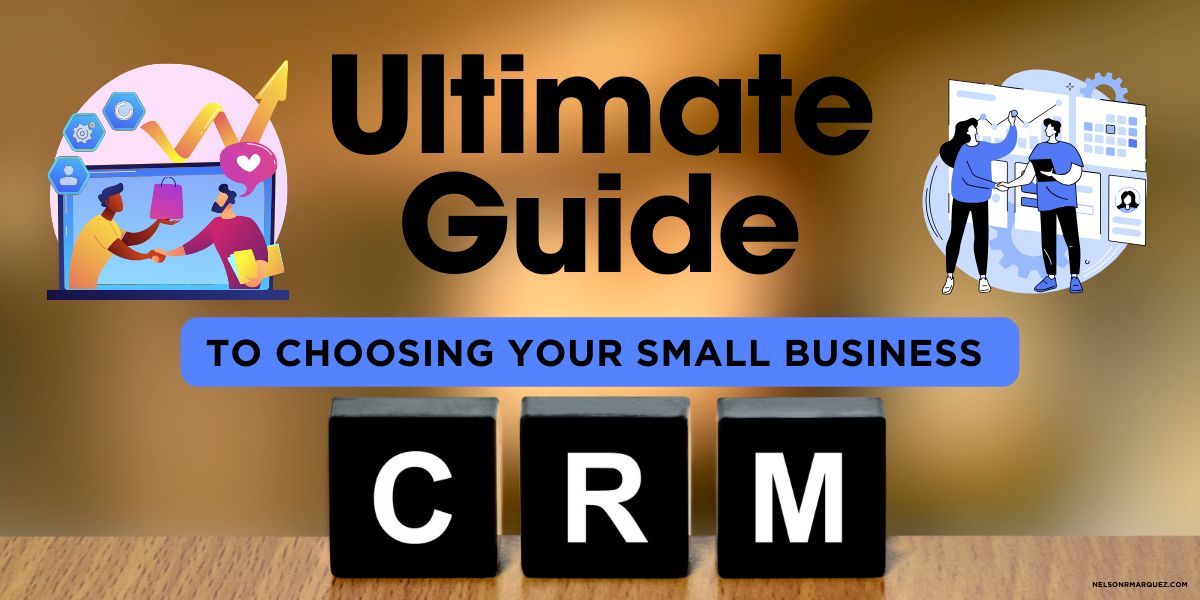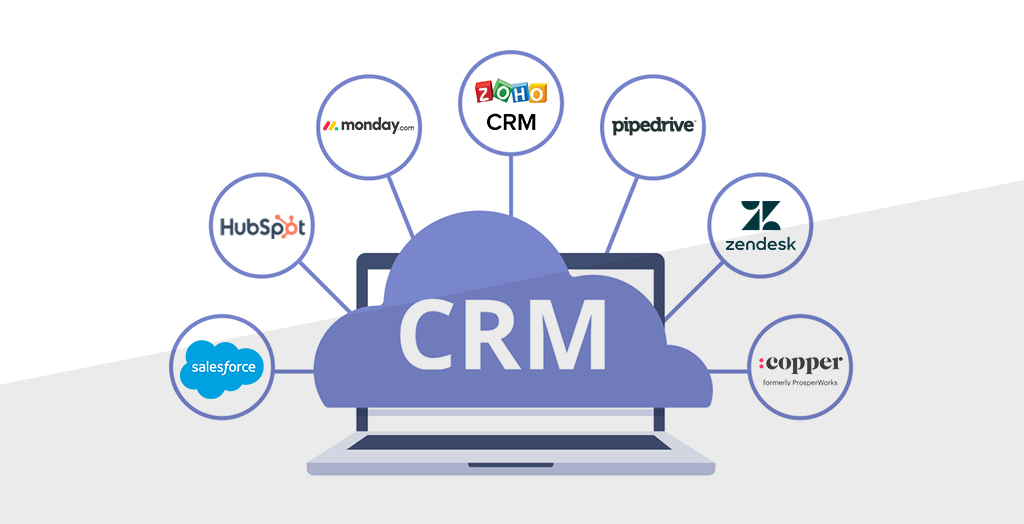Boost Your Small Business Sales: The Ultimate Guide to CRM
In the bustling world of small businesses, where every lead counts and every sale matters, having the right tools can make all the difference. One such tool, often hailed as a game-changer, is Customer Relationship Management (CRM) software. But what exactly is CRM, and why is it so crucial for small business sales? This comprehensive guide dives deep into the world of CRM, exploring its benefits, features, and how you can leverage it to supercharge your sales efforts.
Understanding the Basics: What is CRM?
At its core, CRM is a technology that helps businesses manage and analyze customer interactions and data throughout the customer lifecycle. Think of it as a central hub where you store everything you know about your customers – their contact information, purchase history, communication logs, and any other relevant details. This consolidated view allows you to understand your customers better, personalize your interactions, and ultimately, drive more sales.
CRM isn’t just about storing data; it’s about using that data strategically. It empowers you to:
- Improve Customer Relationships: By understanding your customers’ needs and preferences, you can tailor your interactions and provide a more personalized experience.
- Streamline Sales Processes: CRM automates repetitive tasks, freeing up your sales team to focus on closing deals.
- Boost Sales and Revenue: By tracking leads, managing opportunities, and analyzing sales performance, CRM helps you identify areas for improvement and drive revenue growth.
- Enhance Customer Service: CRM provides a complete view of customer interactions, enabling you to provide faster and more effective support.
Why CRM is Essential for Small Business Sales
In the early stages of a small business, you might be tempted to rely on spreadsheets and email to manage your customer relationships. However, as your business grows, this approach quickly becomes unsustainable. Here’s why CRM is indispensable for small business sales:
1. Centralized Customer Data
Imagine having all your customer information in one place, easily accessible to your entire team. CRM makes this a reality. No more scattered spreadsheets, lost emails, or missed opportunities. With a centralized database, everyone on your team has access to the same up-to-date information, ensuring consistent communication and a unified customer experience.
2. Improved Lead Management
CRM helps you track leads throughout the sales pipeline, from initial contact to closing the deal. You can identify high-potential leads, nurture them with targeted communication, and move them seamlessly through the sales process. This streamlined approach ensures that no lead falls through the cracks and that you’re maximizing your chances of converting leads into customers.
3. Increased Sales Productivity
CRM automates many of the tedious tasks that eat up your sales team’s time, such as data entry, follow-up emails, and scheduling appointments. This automation allows your team to focus on what they do best: building relationships, closing deals, and driving sales. By streamlining your sales processes, CRM helps you get more done with the same resources.
4. Enhanced Sales Forecasting
CRM provides valuable insights into your sales pipeline, allowing you to forecast future sales with greater accuracy. You can track key metrics, such as lead conversion rates, deal sizes, and sales cycle lengths, to identify trends and make data-driven decisions. This predictive capability helps you plan your resources effectively and adjust your sales strategies as needed.
5. Better Customer Service
CRM provides a complete view of customer interactions, enabling your customer service team to provide faster and more effective support. They can quickly access customer information, view past interactions, and understand the customer’s needs. This allows them to resolve issues quickly and efficiently, leading to increased customer satisfaction and loyalty.
Key Features to Look for in a CRM for Small Businesses
Choosing the right CRM for your small business can seem daunting. Here are some essential features to look for:
1. Contact Management
This is the foundation of any CRM system. It allows you to store and manage customer contact information, including names, addresses, phone numbers, email addresses, and social media profiles. Look for features like:
- Contact Segmentation: Grouping contacts based on various criteria (e.g., industry, location, purchase history).
- Data Import/Export: Easily importing and exporting contact data from other systems.
- Duplicate Detection: Identifying and merging duplicate contact records.
2. Lead Management
This feature helps you track leads throughout the sales pipeline, from initial contact to closing the deal. Key features include:
- Lead Capture: Capturing leads from various sources (e.g., website forms, email campaigns).
- Lead Scoring: Assigning scores to leads based on their behavior and demographics.
- Lead Nurturing: Automating email campaigns and other communications to nurture leads.
- Sales Pipeline Management: Visualizing and managing leads through different stages of the sales process.
3. Sales Automation
This feature automates repetitive sales tasks, freeing up your sales team to focus on more strategic activities. Key features include:
- Email Automation: Sending automated email sequences to leads and customers.
- Task Automation: Automating tasks like scheduling appointments and sending reminders.
- Workflow Automation: Creating automated workflows to streamline sales processes.
4. Reporting and Analytics
This feature provides insights into your sales performance, allowing you to track key metrics and make data-driven decisions. Key features include:
- Sales Reports: Generating reports on sales performance, lead conversion rates, and other key metrics.
- Dashboards: Visualizing key metrics in real-time.
- Customizable Reports: Creating custom reports to track specific data points.
5. Integration with Other Tools
CRM should integrate with other tools your business uses, such as email marketing platforms, accounting software, and social media channels. This integration streamlines your workflows and ensures that data is shared seamlessly between systems.
Choosing the Right CRM: A Step-by-Step Guide
Selecting the right CRM for your small business is a crucial decision. Here’s a step-by-step guide to help you make the right choice:
1. Define Your Needs and Goals
Before you start evaluating CRM systems, take the time to define your needs and goals. What problems are you trying to solve? What are your key priorities? What features are essential for your business? Having a clear understanding of your requirements will help you narrow down your options and choose a system that meets your specific needs.
2. Research Different CRM Providers
Once you know your needs, start researching different CRM providers. Read reviews, compare features, and explore pricing options. Consider factors like ease of use, scalability, and customer support. Some popular CRM options for small businesses include:
- HubSpot CRM: A free CRM with robust features for contact management, lead management, and sales automation.
- Zoho CRM: A feature-rich CRM with a range of pricing plans to suit different budgets.
- Salesforce Sales Cloud: A comprehensive CRM with advanced features for larger businesses.
- Pipedrive: A sales-focused CRM with a visual sales pipeline and intuitive interface.
- Freshsales: A sales CRM with built-in phone and email capabilities.
3. Evaluate Ease of Use
The CRM system you choose should be easy to use and intuitive. If your team struggles to learn and use the system, it will be difficult to achieve the desired results. Look for a system with a user-friendly interface, clear instructions, and helpful tutorials.
4. Consider Scalability
Choose a CRM system that can grow with your business. As your business expands, you’ll need a system that can handle more data, users, and features. Make sure the CRM you choose offers the scalability you need to support your future growth.
5. Assess Customer Support
Choose a CRM provider that offers excellent customer support. You’ll likely need help with setup, training, and troubleshooting. Make sure the provider offers multiple support channels, such as email, phone, and live chat, and that they are responsive and helpful.
6. Start with a Free Trial or Demo
Most CRM providers offer free trials or demos. Take advantage of these opportunities to test the system and see if it’s a good fit for your business. This allows you to evaluate the features, ease of use, and overall functionality before committing to a paid plan.
7. Implement and Train Your Team
Once you’ve chosen a CRM system, it’s time to implement it and train your team. Provide comprehensive training on how to use the system and encourage your team to embrace the new technology. Make sure everyone understands the benefits of CRM and how it can help them achieve their goals.
Maximizing the Value of Your CRM: Best Practices
Implementing a CRM is just the first step. To truly maximize its value, you need to adopt best practices:
1. Clean and Accurate Data
Garbage in, garbage out. Make sure your CRM data is clean, accurate, and up-to-date. Regularly review your data, remove duplicates, and correct any errors. This ensures that your CRM provides reliable insights and that your team can make informed decisions.
2. Consistent Data Entry
Establish clear guidelines for data entry and ensure that everyone on your team follows them. This helps maintain data consistency and prevents errors. Use data validation rules to ensure that data is entered in the correct format.
3. Regular Training and Adoption
Provide ongoing training to your team to ensure they are using the CRM effectively. Encourage them to explore new features and functionalities. Monitor their usage and provide support as needed. The more your team uses the CRM, the more value you’ll get from it.
4. Customize the CRM to Your Needs
Most CRM systems allow you to customize the system to meet your specific needs. Tailor the system to your sales processes, workflows, and reporting requirements. This ensures that the CRM aligns with your business goals and helps you achieve the desired results.
5. Integrate with Other Tools
Integrate your CRM with other tools you use, such as email marketing platforms, accounting software, and social media channels. This streamlines your workflows and ensures that data is shared seamlessly between systems. Integration can save you time, improve efficiency, and provide a more complete view of your customer interactions.
6. Analyze and Refine
Regularly analyze your CRM data to identify areas for improvement. Track key metrics, such as lead conversion rates, deal sizes, and sales cycle lengths. Use this data to refine your sales strategies, improve your processes, and optimize your CRM configuration. This iterative approach ensures that you are continually maximizing the value of your CRM investment.
CRM and the Future of Small Business Sales
The future of small business sales is inextricably linked to technology, and CRM is at the forefront of this transformation. As technology continues to evolve, CRM systems will become even more sophisticated, offering:
- Artificial Intelligence (AI) Powered Insights: AI will provide predictive analytics, identify sales opportunities, and automate tasks.
- Enhanced Personalization: CRM will enable even more personalized customer experiences.
- Seamless Integration: CRM will integrate seamlessly with other business systems.
- Mobile Accessibility: CRM will be accessible from anywhere, at any time.
Small businesses that embrace CRM and leverage its capabilities will be well-positioned to thrive in the competitive landscape. Those who hesitate will risk falling behind.
Conclusion: Embrace CRM for Small Business Success
In conclusion, CRM is no longer a luxury; it’s a necessity for small businesses looking to succeed in today’s competitive market. By centralizing customer data, streamlining sales processes, and providing valuable insights, CRM empowers small businesses to build stronger customer relationships, drive more sales, and achieve sustainable growth. By following the steps outlined in this guide, you can choose the right CRM for your business, implement it effectively, and maximize its value. Embrace CRM, and watch your small business sales soar!





